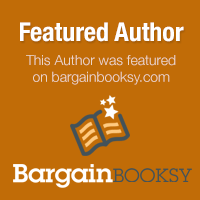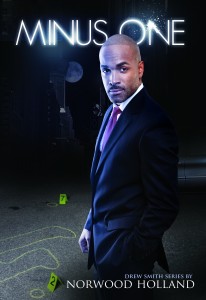Self-Publisher: To Be or Not To Be
February 3, 2012
Self-publishers, also known as independent publishers have leveled the playing field. The day of the joint media/publishing conglomerates with their teams of agents and editors singularly controlling publishing success is over. The internet with a certain ease now allows writers to publish, promote. and sell their books directly to the public. That’s not to say there are no disadvantages to self-publishing. There is the stigma perpetuated by traditional publishing interests aided by ignorant and careless authors.
Author Gloria Mallette in the February 2012 Writer’s Magazine tells of her self-publishing success after years of rejection. She self-published Shades of Jade, and sold 13,000 copies in 2001. Random House noticed her success and wanting a piece of the action reached out while she was feeling overwhelmed with the time consuming self-publishing process. When asked about the change back to self-publishing she explained after publishing 2 books with Random House and 4 books with Kensington Books she returned to self-publishing because Kensington wanted her to write erotica which she refused to do.
There are numerous best seller success stories. Among the advantages of independent publishing control is ranked as number one. Many prefer total control and time becomes a factor while a traditional publishing contract may take anywhere from 18-24 months before the title is in print. The question is whether you’re willing to take on that responsibility specifically the costs. A self publisher is responsible for all cost related to production and promotion, and there are no substantial advances commonly offered by traditional publishing houses. But the good thing is you don’t have to worry about not earning out your advance or being dropped without an option for another book. Incidentally 70-80% of traditionally published authors fail to earn out their advance. An independent publisher controls his own royalties, properties, and operating costs.
Beware, the greatest pitfall is the loss of objectivity. It is absolutely imperative the outside publisher seek outside editorial and business advice. This can often be provided through a self publishing company or the self reliant may prefer to seek out their own team of professional consultants for expert advice on editing, book design, promotional and legal matters. Three reference guides helped me through the process: Peter Bowerman’s The Well-Fed Self-Publisher, How to Turn One Book into a Full-Time Living, and Marilyn Ross’s The Complete Guide to Self-Publishing.
Make no mistake about it, publishing is a business and you would do well to appreciate it as such. There is a lot to learn, marketing, publicity, technology, legal and industry regulations. A professional writer is a very small business of one person; a solo trader in literary ideas. Those who are not businesslike are unlikely to survive. Competition in the market is stiff and your product should be of the highest quality. The learning curb is steep, but you don’t have to go it alone. A great deal of support can be found throughout the industry. National associations like the Indpendent Book Publishers Association and the regional Mid-Atlantic Independent Publishers Association offer marketing support and educational resources.
If you would rather just write and not be bothered with business details then by all means continue writing and querying agents sooner or later you’ll get that break. It will more likely be later, the ebook and internet have upended traditional publishing with increased competition and publishers are less likely to gamble on new writers unable to prove their profitability and ability to garner a readership. Alternatively, if you want to write and run your own business you’ll no doubt embrace the challenges of self publishing. So roll up your sleeves, there’s work to be done.
Writing The Book Proposal
January 27, 2012
A book proposal is multi-purpose but more necessary for non-fiction while an outline may adequately serve the fiction writer’s planning purpose. The proposal keeps the writer focused on the end game i.e., selling books. The greatest benefit is allowing the author to shop it around without a final manuscript. It eliminates the need to write the entire manuscript before you make the sale; indeed, most professional writers, and most beginners as well, use a book proposal to close the deal. Writing a book proposal is often an eye opening experience allowing your creativity to expand and explore possibilities in structuring and organizing the book.
You must submit a book proposal (usually via a literary agent) to procure a book deal. The reason is that the publisher needs to know if investing the money in publishing your book will pay off. Your book proposal must make a compelling case that this book, written by you, is needed in the marketplace.
A good reference is literary agent Michael Larsen‘s How To Write A Book Proposal. He sets out the hot buttons that will excite editors and agents like good writing, the size of the market you plan to penetrate and your ability to promote the book. Like a road map the proposal components serve as milestones along the journey to your publishing destination. It’s a great way to gel you thinking on the marketing viability of your book. Remember you want to write a book people will want to read, and your book proposal is going to show that editor/agent how you plan to do it.
How will it sell? You’ll have to pitch your proposal and it should have a curiosity factor or what Larsen calls “hot buttons” that pique an agents curiosity. For the nonfiction book the proposal helps define the market and the targeted reader, likewise a fiction outline should address the genre and the targeted reader. Every genre has certain specific rules for example a thriller cannot be a thriller without gripping suspense. Knowing the rules and determining market and genre factors are indispensable considerations in planning your book.
The non-fiction author should have a platform or at least begin to build one. A platform speaks to an author’s credentials and what qualifies him or her to speak with any kind of authority on the topic. Literary Agent Rachelle Gardner in her 10 Tidbits About Author Platform suggests a platform is only necessary if you want to sell a lot of books, and not necessary if your primary goal is to write rather than sell. I agree particularly when it comes to the fiction author where an author’s qualifications are more likely measured by the quality of the writer’s writing. Non-fiction authors, be aware the platform is a primary consideration for publishers, and should be primary for you even if you’re considering self-publishing.
Platform building can include: building a speaking career and speaking to larger and larger audiences; having regular or ongoing visibility in the traditional media (radio, TV, magazines, newspapers); having a highly visible position in a large organization, for example, being a pastor of a 5,000 member church or the CEO of a 1,000-employee company; or building a strong online identity with blogging and social networking.
Author William Cain explains the book proposal components with this table of contents example.
- Overview
- Marketing
- Promotion
- Competing Books
- About the Author
- List of Chapters
- Chapter-by-Chapter Summaries
- Sample Chapters
So you say you want to write a book, for non-fiction start with a proposal. If its fiction learn the elements of your genre and conform your outline thereto. Every genre has common specific elements be it Literary, Mystery, Thriller, Romance, Science Fiction, Fantasy and all other contemporary popular genres. In setting out on your journey to write that book let the foregoing be your food for thought.
Next: Self Publisher: To Be or Not To Be
Every Writer Needs An Editor: It’s Necessary
January 13, 2012
Rec ently I was asked to review two books in final published format that clearly had not passed under an editor’s eyes. My initial reaction was embarrassment for the author while each may believe in their books–not to say the writing was bad. In fact in both books the writing was quite good, but poor plot and character development, typos, misspelled words, and misplaced commas were huge distractions taking away from the reading experience diminishing the book’s value. Why is it that some authors publish their work without an editor’s assistance? Very few if any published books are error free, but rest assured those that have been properly edited are usually free of obvious errors. This has been the dilemma of self publishing and reason why major newspapers refuse to review self published books regarding them as of poor quality and mere vanity publications. Why some authors skip this necessary step is beyond me, but I offer this advice, if you can’t afford an editor then you can’t afford to publish.
ently I was asked to review two books in final published format that clearly had not passed under an editor’s eyes. My initial reaction was embarrassment for the author while each may believe in their books–not to say the writing was bad. In fact in both books the writing was quite good, but poor plot and character development, typos, misspelled words, and misplaced commas were huge distractions taking away from the reading experience diminishing the book’s value. Why is it that some authors publish their work without an editor’s assistance? Very few if any published books are error free, but rest assured those that have been properly edited are usually free of obvious errors. This has been the dilemma of self publishing and reason why major newspapers refuse to review self published books regarding them as of poor quality and mere vanity publications. Why some authors skip this necessary step is beyond me, but I offer this advice, if you can’t afford an editor then you can’t afford to publish.
With the growth of the internet, self publishing has taken off giving the publishing cartel, the “Big Six”, (Hachette Book Group, Harper Collins, Macmillan, Penguin Group, Random House, and Simon & Schuster) a run for the book buyer’s money. These publishers hire people who do nothing but editing and regard this step as the most important in the publishing process. For good reason, good writing is so much more than just grammar and punctuation. Many authors spend years in apprenticeship mastering the skills. I’ve heard novelists boast of having no formal training and I don’t believe formal training is required but there are certain fundamental rules that must be mastered. Concepts like show don’t tell, point of view, characterization, exposition and dialogue mechanics all have rules which serve a purpose enhancing the reading experience. If you’re a writer and you don’t recognize these terms you better ask somebody. Better yet. study the craft, immerse yourself in your chosen genre. There is a plethora of books and how to sources online and in your local library. Join a writing group and attend writing conferences. You’ll be amazed with what you take away.
I wrote my first book 10 years ago and could have wall papered a room with the rejection letters. It wasn’t easy, but I didn’t give up, and began to study the genre I aspired to publish in, I subscribed to Writers’ Digest and The Writer’s Magazine which would publish one of my articles years later. I studied, I learned, I conquered. Indeed it took time and money, neither of which was prohibitive. I saw it as an investment. I continued to write but hired professional editors who guided me to next level. The rejection letters to my queries didn’t stop but something changed. Publishers began to requests the entire manuscripts rather than first 30 pages. I managed to get more than just a foot in the door but a manuscript on the desk, a benefit of attending pitch conferences. That extra added criticism and guidance helped my work shine, and you want your work to shine and to improve your chances its necessary to invest in your writing.
I learned attending writing conferences the value of blogs and social media, and to the aspiring novelist, do yourself a favor and avoid a future of having to make excuses, explanations and playing the blame game. There’s a reason professionals and academia rely on peer review. Don’t destroy your future as a writer before you even begin, invest the time and money. It’s necessary. You’re putting your name out there, and if you want readers to keep coming back give them reason to.





